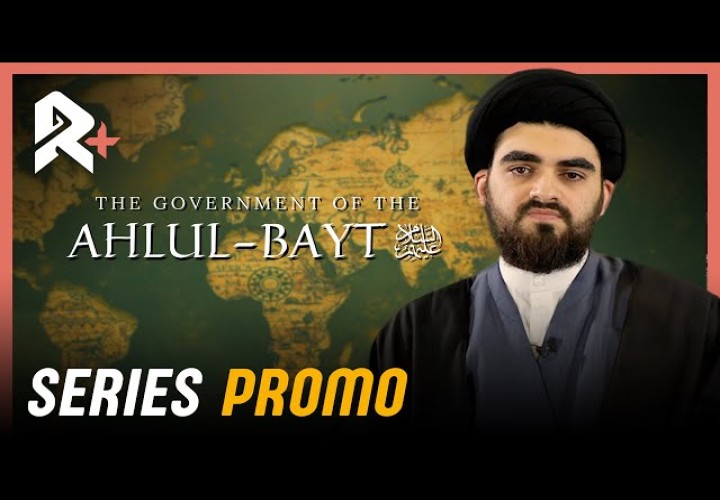The Government Of The Ahlul-Bayt
در ائمه اطهار علیهم السلامچه چیزهایی یاد خواهید گرفت؟
Politics: The Very Heart of Islam by Ay. Sayed Sadiq Shirazi
درباره این دوره
When Daesh (ISIS) took control of parts of Iraq and Syria, the world witnessed their brutality and viciousness firsthand. These acts of terrorism were falsely carried out in the name of Islam, with claims of implementing certain Islamic concepts—claims that led to confusion and concern among both Muslims and non-Muslims.
This course responds to the important questions that arose in the aftermath, including:
What is the concept of jizyah—the tax non-Muslims pay in an Islamic state?
How are non-Muslims supposed to be treated under Islamic governance?
Does Islam mandate the humiliation of non-Muslims?
How did the Ahlul Bayt (peace be upon them) interact with non-Muslims in their time, especially during the leadership of Imam Ali (peace be upon him)?
Is jizyah only accepted from the People of the Book (Ahlul Kitab), while others are forced to convert or face death?
Does an Islamic government allow religious freedom and offer protection to its non-Muslim citizens?
In this series, we explore these pressing questions through the lens of the Qur'an, Sunnah, and the opinions of classical and contemporary scholars. Each episode is designed to clarify misconceptions and present the ethical, legal, and spiritual dimensions of Islamic governance, particularly from the perspective of the Ahlul Bayt.
Episode Topics Include:
An Introduction to Jizyah
Who and What Is Jizyah For?
The Discretionary Nature of Jizyah
Can Jizyah Be Collected Through Aggression?
Religious Freedom in an Islamic Government
Imam Ali (as) Condemns Muawiyah for Harming Non-Muslim Women
The Islamic Government Welfare System
Sayyed Muhammad Shirazi’s Views on Jizyah
Do Non-Muslims Have to Choose Between Islam or Death?
Does the Qur'anic Verse on Jizyah Promote Humiliation?
Join us in this essential journey to separate propaganda from principle, and terrorism from theology.
نظرات (0)
Sayed Ali al-Shobayri delves into the concept of an Islamic Government in line with the teachings of the Ahlul-Bayt (peace be upon them). Many misconceptions have arisen in the last decade due to false twisted versions of Islam taking the spotlight. Let’s correct our understanding of the just and morally upright system of Islamic governance.
Jizyah is an oppressive system and discriminates against non-Muslims! Or so they say... What is Jizyah exactly? And is it a relevant discussion to be had today?
What is the purpose of Jizyah? How is the money put to use? And what categories of people does it apply to?
Did you know Jizyah is not a fixed number and is at the discretion of a righteous Imam?
Let’s take a look at how Imam Ali (peace be upon him) set an example through his dealings with Zoroastrians
When we look at concepts such as Jizyah, it is important to look at the biographies of the Ahlul-Bayt (peace be upon them). Was their example one of intimidation and aggression towards people? Let’s look at Imam Ali’s (as) advice to his tax collectors in letter 51 of Nahj al-Balagha.
Do non-Muslims have the right to practice their religion freely in an legitimate Islamic Government? And does freedom within an Islamic Government allow propagating concepts and carrying out actions which Islam deems harmful to the wider society?
Let’s take a look at what Imam al-Sajjad (peace be upon him) says in ‘The Treaties Of Rights’ about Ahlul-Dhimmah; the protected non-Muslims under an Islamic Government. As well as what Imam Ali (peace be upon him) says in Nahj al-Balagha upon hearing about Muawiyah’s (la) army harming Muslims and non-Muslim women.
Let’s take a closer look at the famous incident where Imam Ali (peace be upon him) deals with a Christian beggar with a disability. How does the Islam of the Ahlul-Bayt (peace be upon them) deal with such cases, and what solutions does it offer to eradicate poverty for Muslims and non-Muslims alike.
We take a look into Ayatollah Sayed Muhammad Shirazi's jurisprudential encyclopaedia and examine whether Jizyah can apply to all non-Muslims, or only those from Ahlul-Kitab.
Did the Ahlul-Bayt (peace be upon them) order that all non-Muslims who are not from the people of the book must accept Islam or face death? Did the Ahlul-Bayt (peace be upon them) offer protection to polytheists?
There’s a verse in the Qur'an that many use to indicate that Jizyah is for the purpose of humiliating non-Muslims. We will look at the only verse in the Qur'an mentioning Jizyah, and cross-examine it with the commentary from scholars and interpretations of the Ahlul-Bayt (peace be upon them).








